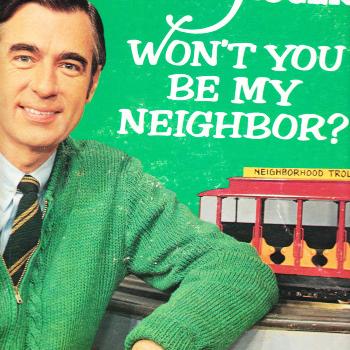You're not allowed to kill civilians.
That's not just a rule or a guideline or a rule of thumb, for God's sake, it's the law. It's U.S. law and it's international law and also, just for good measure, it's international law that has been signed and ratified and appended again onto U.S. law. You're not allowed to kill civilians.
But this is also more than a law. It gets at the matter of definition. The distinction between a soldier and a murderer comes down to just exactly this and only this. Rank and uniform and the giving and receiving of orders ultimately are of no consequence apart from this. You're not allowed to kill civilians.
This is how we distinguish, say, Sen. Daniel Inouye from Ted Bundy. This is why the former is rightly revered and the latter rightly reviled. Inouye was awarded the medal of honor and that word, "honor," is yet another term whose meaning hinges on this one thing. You're not allowed to kill civilians.
I gradually tired of restating this due to the hair-splitting pedants and apologists for the vicarious titillation of indiscriminate death who insisted that stating the principle this bluntly was recklessly irresponsible. "Harrumph, harrumph," they harrumphed, "double effect harrumph."*
And of course it's true that the real world complicates every simple principle and that any meaningful or lasting principle has to account for those complications. But when someone's first impulse is to cavil and dilute and disqualify by qualification, I'm not convinced that their objections are raised in good faith.
For those who are, in fact, harrumphing in good faith, I'm perfectly willing to calibrate the principle more precisely, something like: You're not allowed to target noncombatants primarily and intentionally.
What that means, of course, is neither more nor less than this: You're not allowed to kill civilians.
– – – – – – – – – – – –
* Double effect or double intention is … well, think of a SWAT team in a hostage standoff. (That's probably a better operating model for America's current wars than other notions that may spring to mind when hearing the word "war.") They can try to shoot the hostage-takers, but doing so raises the risk of accidentally hitting the hostages. Generally speaking, SWAT teams won't take that risk, but if the situation is judged to be one in which not shooting puts the hostages in even greater danger, then they'll risk the shot. In such a circumstance, the blame for any hostages unintentionally injured or even killed by the SWAT team is not attributed to the officers, but to the hostage-takers. The SWAT team isn't regarded as having killed civilians because that is not why they chose to shoot. Their actions are covered under the principle of "double effect." Killing the hostages was not the motive or intent for the SWAT team's actions.
The principle covers more than just such accidental, wholly unintentional casualties. Imagine a scenario in which a hostage-taker is about to kill several of his hostages and is also shielding himself by holding a hostage in front of him. The SWAT sharpshooter's only option for stopping him is to shoot him through that hostage. The sharpshooter takes that option, thus stopping the hostage-taker and saving several lives, but also killing one of the innocent hostages it was his mission to save. The killing of that hostage is not accidental or even unintentional — it was foreseeable and deliberate. But the principle of double effect still applies, because the consequence of killing that hostage was not the primary purpose or intent of the sharpshooter's actions.
But this important, nuanced ethical rule — one that exists just for such extreme, restricted-option, awful situations — is not infinitely elastic. It could never be used to justify, for example, a SWAT team opening a spray of indiscriminate automatic weapons fire or calling in an air strike to destroy the hostage-takers, the hostages and the surrounding neighborhood.
You're not allowed to kill civilians. Double effect exists only to help clarify what that means in particular hard-case dilemmas. Whenever you encounter someone using it otherwise — to replace or trump the prior principle — then you are dealing with someone arguing in bad faith, someone who, in Orwell's phrase, is using the language of ethics "to make lies sound truthful and murder respectable, and to give an appearance of solidity to pure wind."












